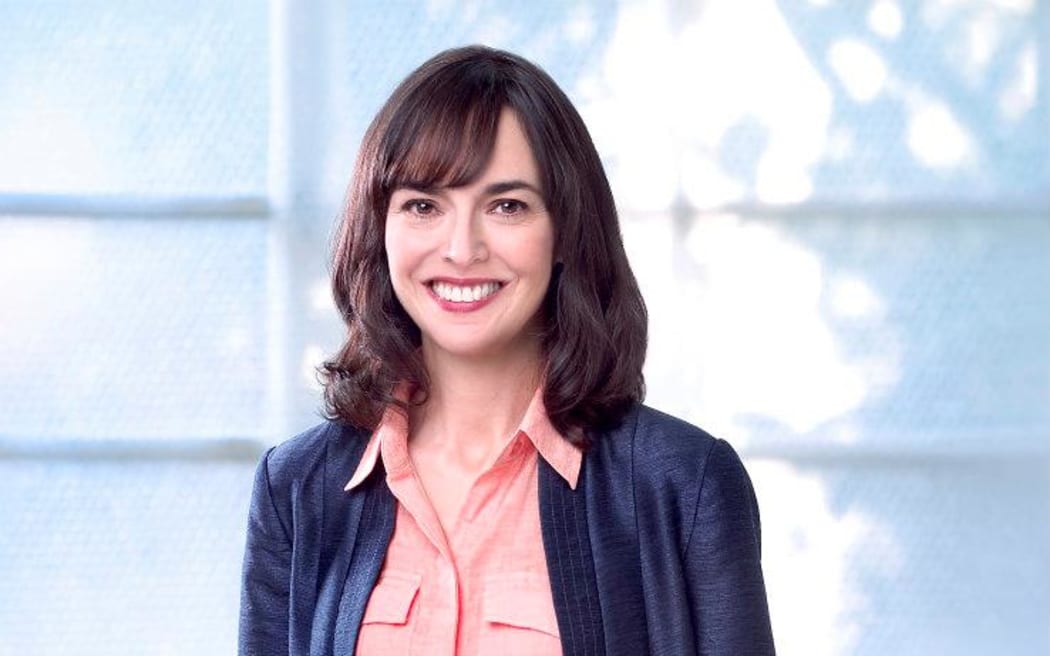There was a time when Lenore Skenazy was labelled ‘America's Worst Mom’ for letting her nine-year-old ride the subway alone in New York City.
She started the Free Range Parenting movement and a non-profit, Let Grow, that promotes childhood independence.
Now research into why children today have such high levels of anxiety seems to support what she has always said about them developing resilience.

Lenore Skenazy Photo: supplied
Children are getting more anxious, the more we worry about them and hover over them, Skenazy tells Jesse Mulligan.
“We’re living in a culture where you can track your kids every single second of the day. They're not only tracked by Find My iPhone, but then their schools are sending home their grades immediately.
“Schools often send home reports during the day of how their children are behaving. Once the kids get out of school, they're driven to an activity.
“Often the activity requires that the parents stay and watch them and sign them out.”
The culture in the US has made it hard for parents who “believe in independence,” she says.
When everyone in society shares a crazy belief, they don't know it's crazy, she says. That belief is that children are constantly in danger and need protecting.
She gives an example from a friend who lives in, “sleepy, suburban Kentucky”.
“He let his 12-year-old go to her friend's house, which is two houses away. And at the end of the play date the mother of the other girl walked his 12-year-old home, [going between] those two houses must have taken 37 seconds, because she just wanted the child to be safe.”
Parents have come to believe “that literally every second is fraught with danger”, Skenazy says.
“It's just part of our culture that it has come become normal to think that at any time a child is unsupervised, they're automatically in danger and who puts a kid in danger only a terrible parent.”
Skenazy was inspired to set up a not-for-profit organisation, Let Grow, to fight against this parental paranoia.
“Childhood anxiety has gone up 10 percent just in a couple of years, and that's a danger too and yet, it's one we give short shrift to because we're so busy thinking about the boogeyman, that we don't think about what it means to raise kids who feel inept, untrusted, incompetent, scared and most of all anxious.”
“Let Grow, one of its big initiatives, is getting schools to send kids home with a homework assignment that just says go home and do something new on your own with your parents’ permission, but without your parents.”
Some examples of what children asked to do give an insight into what’s happening in the US culture, she says.
“One of the kids who was in third grade, which is about an eight-year-old, said that for his project, ‘I learned to make my own sandwich’.
“It makes you laugh, and it also makes you cry.”
Another child in New York wrote that he wanted to ride the elevator by himself, she says.
“It seems crazy that he's never gone upstairs or downstairs in his own building by himself, but he learned that even if I am by myself, it will be okay.”
That simple concept is a big thing to learn, she says. And parents, she says, instinctively know that giving children independence is a valuable life tool, but are stymied by a prevailing culture of fear.
“A University of Michigan study published a month or two ago, that said that parents desperately want to give their children independence, they recognise that it's good for their development, for their resilience, their confidence, their competence.
“But as the study actually put it, there was a ‘sizable gap between the things the parents thought that their kids should be doing or could be doing and wanted their kids to be doing and what they actually let them do.’
Parents in the Michigan study had children aged nine to 11, she says.
“Which is like Tom Sawyer age, the majority of them would not let them walk to a friend's house, would not let them play in a park with a friend.
“And then 50 percent of them wouldn't let these kids... go to another aisle in the store.”
Parents have been so conditioned to never let their kids out of their sight that they can't, she says.
Her Let Grow homework project aims to allay these fears.
“Everyone in the school is getting the homework assignment, go home and do something without your parents. That gives parents both the guiltlessness, I gotta do it, the school is saying I gotta do it’. but also the safety in numbers, everybody is doing it.”
Much of this parental fear can be put down to 40 years of obsession with stranger danger, she says.
“Here in America ever since the ‘80s when there were a couple of high-profile kidnappings, they started printing the pictures of missing children on milk cartons.
“It used to be on the table with next to the cereal. And it really convinced people that all these children were being kidnapped because there was no context.”
That context is that most missing children are runaways or taken in a divorce dispute, she says.
“There's never an asterisk on those pictures. So, you assume that they're all taken by the Boogeyman.”
Allowing children to roam more, make mistakes and confront problems fosters strength, she says.
“Because you've previously thought that you are this fragile, breakable, near-death object. And now you are a kid who can go, oh, that screwed up, but here's what I'll do. Or if it screws up, I'll be fine. And that's a superpower. That's the power to go out there in the world.”

